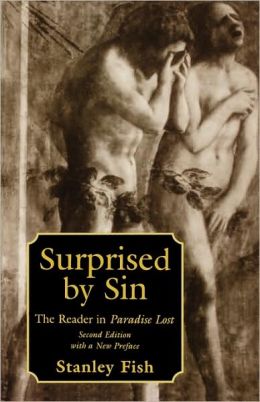>One of the aspects of Paradise Lost people have been trying for centuries to figure out is this: Why is Satan the most compelling character? He's the one that gets all the poetry, the fancy rhetoric, the courage and the devil-may-care attitude. Here he is, talking to Beezlebub in Hell:
Is this the Region, this the Soil, the Clime,
Said then the lost Arch Angel, this the seat
That we must change for Heav'n, this mournful gloom
For that celestial light? Be it so, since hee
Who now is Sovran can dispose and bid
What shall be right: fardest from him is best
Whom reason hath equald, force hath made supream
Above his equals. Farewel happy Fields
Where Joy for ever dwells: Hail horrours, hail
Infernal world, and thou profoundest Hell
Receive thy new Possessor: One who brings
A mind not to be chang'd by Place or Time.
The mind is its own place, and in it self
Can make a Heav'n of Hell, a Hell of Heav'n.
Badass! God, by contrast, comes off as a self-righteous, authoritarian prude. Why would Milton make Satan look so awesome and God look so bad? William Blake famously said that Milton was "of the Devil's party without knowing it." Could it be that the righteous Puritan Milton really was more emotionally invested in his artistic depiction of the devil?
Fish replies to these claims with a breathless piece of Reader-Response criticism. He argues that Satan's seductiveness is part of the design of the poem; we are supposed to be attracted by Satan because that's his M.O. We respond to his lies, his rhetoric, his sublimity on an internal level, and then must face the cognitive dissonance of our intense attraction to Satan. That, Fish argues, is the way we learn to cast our gaze inward on our own fallen nature. If we are dissatisfied with God's language, well, as Milton reminds us in On Reformation: "The very essence of truth is plainness and brightness; the darkness and crookedness is our own."
I find this a very compelling way of reading the poem, and perfectly in accord with the kind of poetry Milton writes elsewhere (though I admit I am not quite yet an expert). Some critics have derided this image of God as a disciplinary schoolmarm, but I think those critics--and to some extent Fish--discount the way in which the poet himself is entangled in this process, having to endure the same education that we are. Paradise Lost is not very interesting if you regard Milton as an uptight jackass (like Robert Graves did) who is constantly bringing the ruler down on the reader's fingers; but as the introspection of a blind, defeated, and utterly broken man, it's something different all together.
I'm going to post a longer review, of course, on Paradise Lost, which is a great poem, though perhaps not what the Kindle Generation wants or feels they need. When I do, I'll share more thoughts about the best way to read the poem, but to be sure, they will be closely modeled after Fish's reading.


1 comment:
This sounds great. When I get around to reading Paradise Lost, I'm picking this up.
Post a Comment